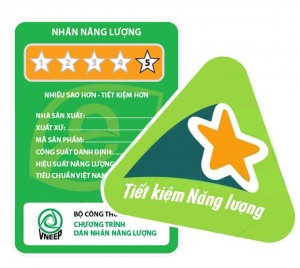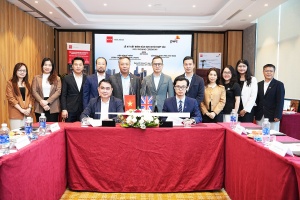ESG has moved well beyond rhetoric, gradually becoming an indispensable criterion for Vietnamese enterprises to remain in the global competitive game and pursue sustainable growth.
With stronger resources and a profound shift in mindset, the domestic business community has moved past the question of “whether to adopt environmental, social, and governance (ESG) or not” to instead ask “how ESG can truly create long-term economic and social value.”
Today, large corporations, particularly FDI enterprises and listed companies, are proactively integrating ESG standards into their corporate governance, production, supply chains, and even green branding initiatives.
Greater emphasis is being placed on transparency in ESG disclosure, aligning reporting with international standards, and leveraging technology to monitor environmental and social impacts.
At the same time, digital transformation serves as a critical enabler, acting as a lever to advance ESG implementation, reduce operating costs, enhance risk management efficiency, and improve stakeholder engagement.
However, not all businesses have navigated the initial phase smoothly. Common challenges include underdeveloped measurement and reporting systems; uncertainty in identifying material ESG issues relevant to each enterprise; shortages of ESG professionals; and the substantial upfront costs of adopting green technologies, clean energy, or production transformation, which are barriers for small and medium-sized enterprises.
 |
| Vietnamese enterprises accelerate on the path to sustainable maturity. Source: Shutterstock |
From a policy perspective, senior leaders have become clearer in positioning ESG not merely as a policy directive, but as a matter of strategic survival.
Speaking at the Vietnam Corporate Sustainability Forum 2025hosted in late August, Deputy Prime Minister Ho Duc Phoc stated that “In the process of promoting sustainable development in Vietnam, the business community plays a central role. Enterprises are the place where creative ideas are realised, new business models are applied, and technological innovation is led.”
“They are also the main actors in implementing ESG standards and making tangible contributions to the sustainable development goals that Vietnam has committed to alongside the international community,” he added.
The Deputy Prime Minister also stressed that the government will continue to support businesses by improving institutions and legal frameworks; accelerating the development of strategic infrastructure such as renewable energy and digital infrastructure; advancing green finance and sustainable credit markets; and mobilising international and social resources to facilitate green and digital transformation, thereby strengthening competitiveness in global value chains.
On September 23, PwC Vietnam will launch the ESG Progress Tracker in Vietnam publication, accompanied by the panel discussion themed ‘Accelerating ESG for Growth’. This event aims to create a forum for dialogue between the business community and policymakers on how ESG can become a driver of competitiveness, unlock long-term value, and position Vietnamese enterprises in an increasingly volatile global landscape.
With its key insights, the report is expected to help businesses not only meet compliance requirements, but also reshape their business models to build enduring competitive advantage.
The discussion will reflect on the current state of ESG adoption, identify areas of progress and ongoing challenges, and propose practical solutions so that ESG evolves from being a responsibility into a competitive advantage, indeed, a survival strategy for enterprises navigating global uncertainty.
 |
ESG-driven sustainability to define Vietnam’s green real estate
Sustainability is taking centre stage in Vietnam’s real estate market, aligned with the growing wave of ESG-oriented capital inflows, with a strong focus on green developments, industrial parks, and housing for professionals. |
 |
Thai Nguyen targets green and sustainable agricultural sector
Thai Nguyen province is implementing comprehensive solutions to develop green, smart, and sustainable production zones, thereby enhancing the value of agricultural products and adapting to climate change. |
 |
Ministry of Industry and Trade drafts circular for energy labelling
The Ministry of Industry and Trade is seeking comments for a draft circular on vehicles and equipment subject to energy labelling and an implementation roadmap. |
 |
Transforming accountancy with sustainability and ESG leadership
ACCA and PwC Vietnam signed an MoU on November 22 in Hanoi to collaborate on implementing global standards in Vietnam. |





